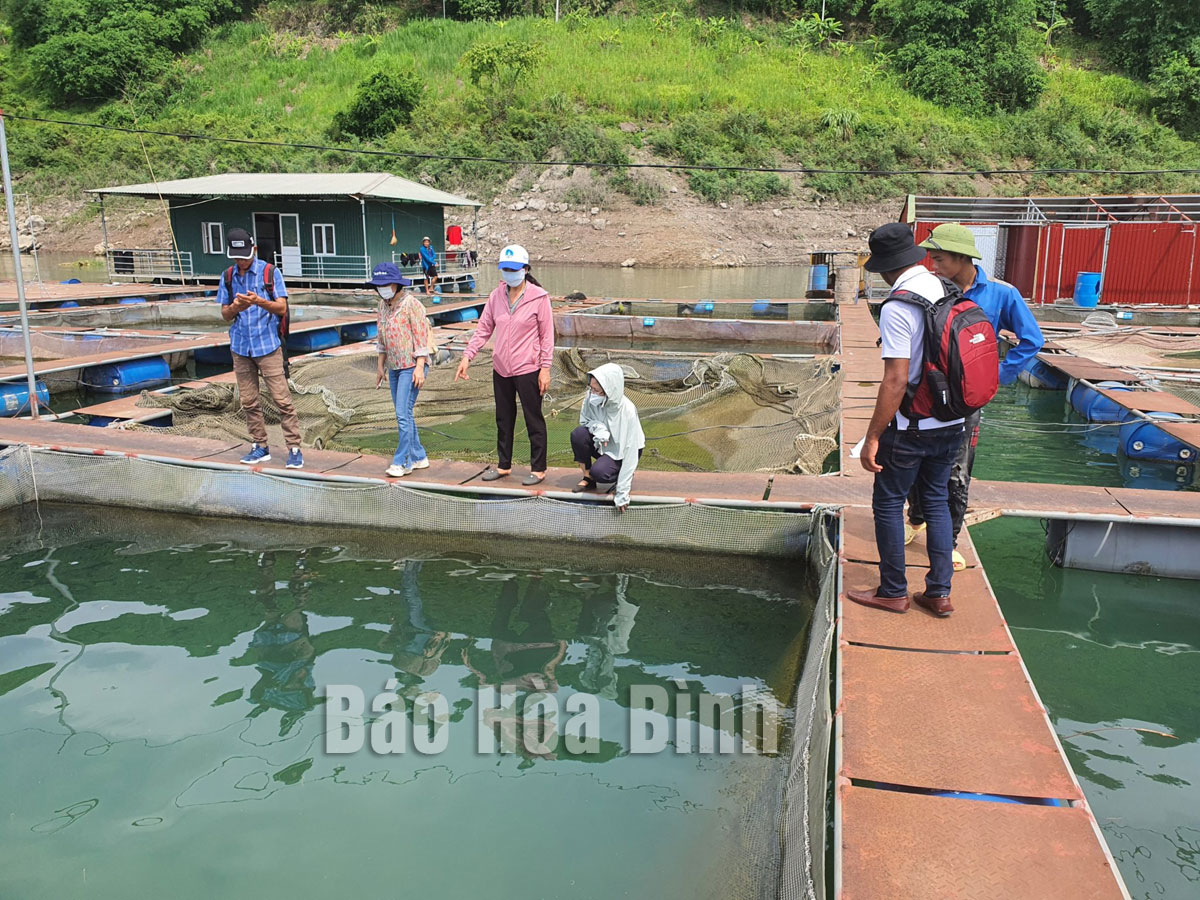
(HBO) – A Cuban delegation and representatives of the Research Institute for Aquaculture No 1 (RIA1) have paid a visit to a cage fish farming model in Hoa Binh province.
The Cuban delegation and
representatives of the Research Institute for Aquaculture No 1 visit a cage
fish farming model on Hoa Binh Lake.
The RIA1 is implementing the third phase of a project to support Cuba in
developing aquaculture in order to increase aquaculture production in the Latin
American nation. Within the framework of a training
session on raising tilapia for Cuban fishing engineers, the institute organised
a field trip to learn and experience a cage fish farming model on Hoa Binh
Lake.
Representatives of the provincial Fisheries Sub-department briefed trainees on
the development of cage fish farming on Hoa Binh Lake. In the first six months
of this year, the province has 4,930 fish cages with a yield of about 1.2
tonnes per cage. Local farmers raise many species of high economic value such
as black carp, tilapia and sturgeon. Currently, cage fish farming on Hoa Binh
Lake is developing strongly, creating more jobs for local residents and
improving their incomes.
The Cuban delegation visited a number
of models in Thai Binh ward (Hoa Binh city) and Vay Nua commune (Da Bac
district) during which owners shared experiences of cage fish farming on the
lake.
At the end of the working trip, the delegation said they hope that in the
future there will be more cooperation projects in the field of fisheries in
general and fish cage farming in particular./.
According to data from the Hoa Binh Provincial Party Committee, the industrial production index for the first six months of 2025 is estimated to have increased by 20% compared to the same period last year. This marks the highest year-on-year growth rate for this period since 2020.
In the first six months of 2025, Hoa Binh province’s export turnover was estimated at 1.145 billion USD, marking an 18.11% increase compared to the same period in 2024. Import turnover was estimated at $ 804 million, a 17.15% increase, which helped the province maintain a positive trade balance.
The lives of the ethnic minority farmers in Tan Lac district have gradually improved thanks to the new directions in agricultural production. This is a testament to the collective strength fostered through the professional associations and groups implemented by various levels of the district’s Farmers’ Union.
With the motto the "product quality comes first,” after nearly one year of establishment and operation, Muong village’s Clean Food Agricultural and Commercial Cooperative, located in Cau Hamlet, Hung Son Commune (Kim Boi district), has launched reputable, high-quality agricultural products to the market that are well-received by consumers. The products such as Muong village’s pork sausage, salt-cured chicken, and salt-cured pork hocks have gradually carved out a place in the market and they are on the path to obtaining the OCOP certification.
In the past, the phrase "bumper harvest, rock-bottom prices" was a familiar refrain for Vietnamese farmers engaged in fragmented, small-scale agriculture. But today, a new spirit is emerging across rural areas of Hoa Binh province - one of collaboration, organisation, and collective economic models that provide a stable foundation for production.
Maintaining growing area codes and packing facility codes in accordance with regulations is a mandatory requirement for agricultural products to be eligible for export. Recently, the Department of Agriculture and Environment of Hoa Binh province has intensified technical supervision of designated farming areas and packing facilities to safeguard the "green passport" that enables its products to access international markets.



